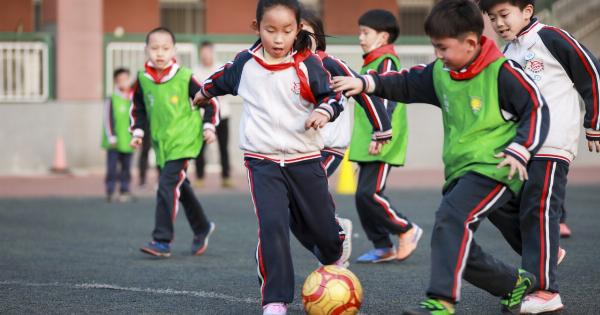Physical activity has always been known to have numerous benefits: promoting better physical health, reducing mental stress, and boosting one’s mood.
However, recent studies also suggest that regular physical activity positively correlates with academic success.
What is physical activity?
Physical activity refers to any movement that involves the contraction of one’s muscles, which in turn requires the expenditure of energy.
Examples of physical activities include walking, running, swimming, dancing, gardening, playing sports, and many others.
How does physical activity affect academic success?
The connection between physical activity and academic achievement is not entirely clear, but there are several ways in which physical activity can positively impact one’s academic performance:.
1. Improved cognitive function
Regular physical activity promotes better blood flow and oxygen supply to the brain, which can enhance cognitive function.
Studies have shown that physical activity can improve attention span, working memory, and other cognitive abilities that are essential for academic success.
2. Reduced stress and anxiety
Physical exercise also reduces stress and anxiety, which can negatively impact academic performance.
When students engage in physical activity, the body releases endorphins, which are natural mood boosters that promote feelings of happiness and well-being. Reduced stress and anxiety levels can also help students sleep better, which in turn can improve academic performance by enhancing memory consolidation and retrieval.
3. Enhanced academic engagement
Physical activity can also enhance academic engagement by promoting a positive attitude towards school and learning.
Studies have shown that students who engage in regular physical activity tend to have better attendance records, higher levels of academic motivation, and more positive attitudes towards school than their sedentary peers.
4. Improved self-esteem and self-confidence
Physical activity can also improve one’s self-esteem and self-confidence, which are essential for academic success.
When students engage in physical activity, they develop a sense of mastery and accomplishment, which can carry over into other areas of their lives, including academics.
5. Improved sleep quality
Physical activity can also improve sleep quality, which is crucial for academic success.
Studies have shown that regular physical activity can help regulate sleep patterns and improve the quality of sleep, which in turn can enhance memory consolidation and retrieval.
Conclusion
In conclusion, physical activity positively correlates with academic success, and students who engage in regular physical activity tend to have better academic performance, better attendance records, and more positive attitudes towards school.
As such, it is crucial that schools and parents encourage students to engage in physical activity as a part of their daily routine.































